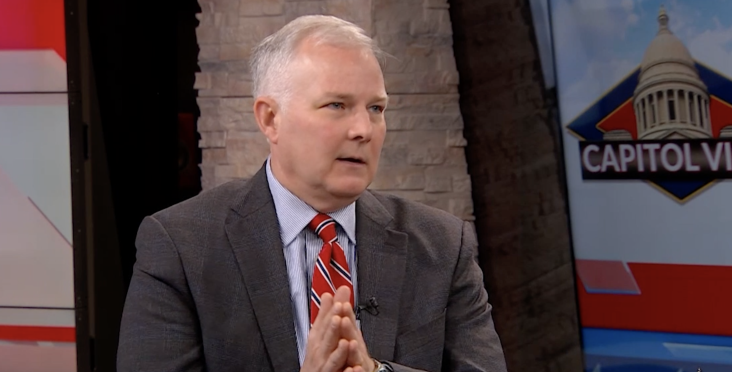AG Griffin says FOIA law needs to modernize
by July 2, 2023 8:53 am 1,899 views

Arkansas Attorney General Tim Griffin.
Pointing to a need for privacy in sensitive situations, Arkansas Attorney General Tim Griffin said Sunday (July 2) the Freedom of Information Act (FOIA) needs to change to adapt to modern times.
“One thing I want to mention that really is driving a lot of my interest here was the ransomware issue with Little Rock School District. The Little Rock School District was a victim of a ransomware [attack]. And the way the FOIA law is currently written, they have to discuss their strategy on dealing with ransomware in public. That’s ridiculous,” Griffin said. “That’s like asking the U.S. Army to strategize and plan a battle in public… We’ve got to change that.”
Griffin, who announced last month he was forming a working group of legislators and FOIA stakeholders to advise him privately, appeared on this week’s Capitol View and Talk Business & Politics programs. He said there was a legislative commission report from the year 2000 that contemplated technological changes that would require amending the FOIA law.
“There was a report on FOIA by the Electronic Record Study Commission back in 2000. They made recommendations for amendments to the FOIA. And one of the things they said is, ‘Individual privacy issues may need to be reconsidered and rebalanced against public access in light of emerging technologies.’” Griffin noted.
Griffin has received pushback from organizations, individuals and media groups for considering changes to FOIA. He was also criticized for not opening up his advisory group for public meetings.
“The bottom line is these are folks that are going to give me advice, and I can take it or leave it,” he said. “[They can] give me advice on what we might could do to improve our FOIA law. You know, some people want to treat the FOIA law as if it belongs between the U.S. Constitution and the Bill of Rights, Declaration of Independence, and in the Washington, D.C. archives. But the fact is it’s not perfect, nothing’s perfect, and it has been updated over the years. And we’re looking to make sure that we do that, we’ll look at all the opportunities to do that.”
When asked if he might consider holding public hearings or meetings with this advisory group in addition to private meetings, Griffin indicated it would be unlikely.
“I meet in private in my office all day, every day. This is not a reality show. I literally, literally have hundreds, if not thousands, of meetings every year. And, they’re not public. The law doesn’t require they be public. The law doesn’t contemplate that they be public,” he said.
When asked if he would allow the FOIA to be “weakened,” Griffin said he’s not sure what that would mean.
“I don’t know what ‘weakened’ means. If weakened means no amendments, no changes? Well, I’m not going to promise that, because that’s the whole point of this,” Griffin said.
If weakening the FOIA means limiting the amount of access the public can have to public records, Griffin said his ransomware example suggests he would push for that type of change. Asked for other examples, Griffin said, “I can’t, but this is the whole issue.”
Griffin also discussed the U.S. Supreme Court’s decision last week to end race-based admissions standards for colleges and universities, and he outlined how he plans to address campaign fundraising emails that promise to “match” donations – a practice he says is deceptive, misleading, and abused in a bipartisan fashion.
On Friday, Griffin vowed to appeal a Pulaski County judge’s ruling that would delay Gov. Sarah Sanders’ LEARNS Act until Aug. 1.
You can watch Griffin’s full interview in the video below.
